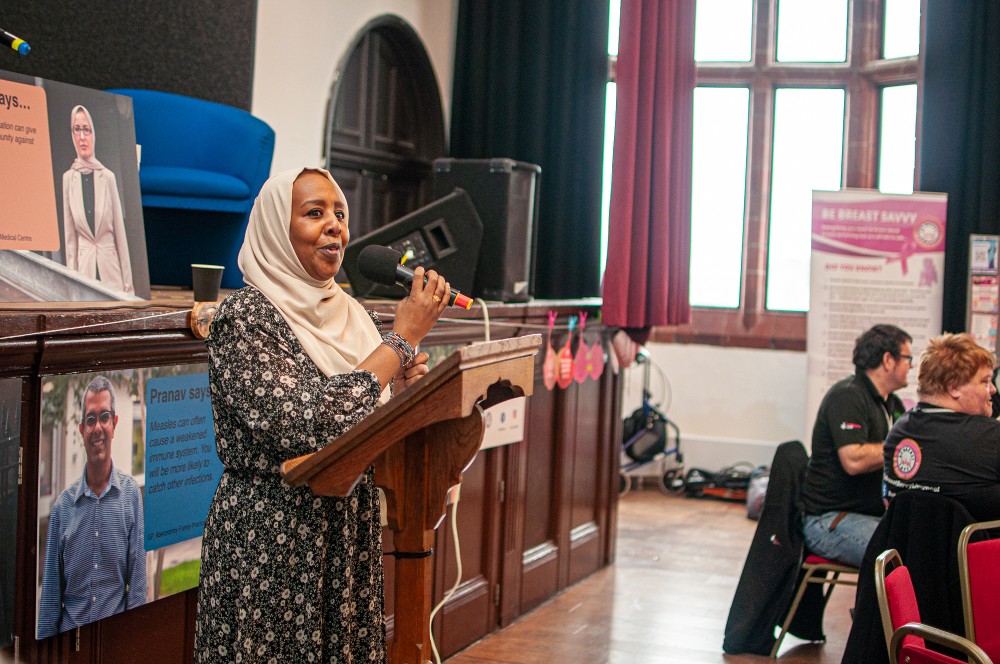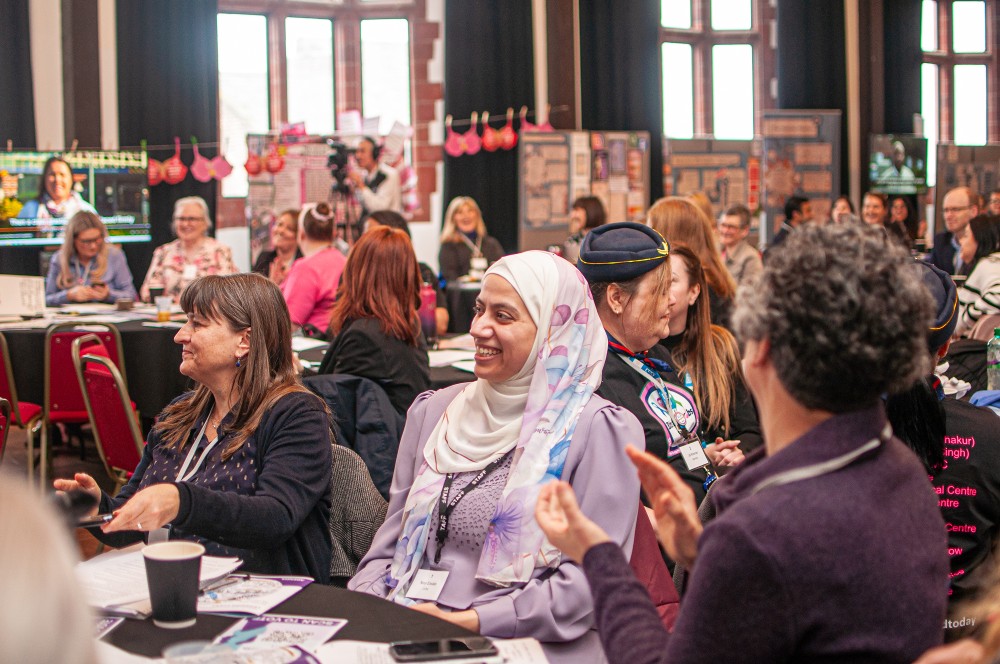
Professor Dame Jenny Harries, head of the UK Health Security Agency, dropped into a learning event showcasing how an innovative community-led programme is tackling health inequalities across Liverpool.
The Health Equity Liverpool Project (HELP) learning event shared the effective work of Community Innovation Teams in developing local, creative-led interventions in underserved communities, building trust and addressing misinformation on public health issues, from cancer screening to childhood immunisation.
HELP is led by Liverpool School of Tropical Medicine and funded by Liverpool City Council, and involves partners including the Infection Innovation Consortium: iiCON. It focuses on strengthening the interface between primary care and communities, and builds on a successful pilot project which addressed vaccine equity in Liverpool during the COVID-19 pandemic. Its second phase broadened its health equity focus to include low uptake of childhood immunisation (MMR), cervical and breast cancer screening.
The community-led model was inspired and adapted from a successful partnership programme in Kenya. The HELP model uses a multi-disciplinary team approach with community at its heart. Membership of community innovation teams include community organisations, community champions; creatives, volunteers; social prescribers; GPs, practice and PCN managers; nurses; care coordinators; community inclusion teams, public health registrars and Network Engagement Leads.

The teams use local health data combined with community insights to identify the root causes of health inequity. They then develop a range of community-led, creative health interventions focused on personalised and localised messaging and outreach events, to improve trust, tackle misinformation and reduce health equity gaps.
Professor Harries, Chief Executive of UKSHA – the UK agency responsible for public health - was keen to find out more from the Community Innovation Teams, in particular HELP’s work in co-producing innovative and bespoke health education and communication materials for tackling low uptake of MMR vaccines in Liverpool.
Her visit was part of the launch of a new multimedia marketing campaign led by UKHSA to remind parents and carers of the risk of their children missing out on protection against serious diseases that are re-emerging in the UK – with an urgent call to action to catch up on missed vaccinations. These resources were developed by UKHSA in partnership with DHSC Marketing, Liverpool City Council, NHS England, NHS North West and NHS Greater Manchester. The campaign theme and materials, builds on insights and feedback from the Central and North Liverpool Community Innovation Teams’ behavioural insight findings.

Over 100 people attended the learning event at The Florrie. Writing on the Wall, creative lead partner, shared details of the new ReCITE programme, led by LSTM, involving partners including iiCON, and funded by the Arts and Humanities Research Council, which will further develop and refine this model with a focus on storytelling to tackle health inequalities.
Amina Ismail, Senior Community Mobiliser at LSTM, said: “The learning event provided the perfect opportunity for Community Innovation Teams to share their learning and celebrate their innovative community-led approaches to addressing health inequalities.”
Professor Miriam Taegtmeyer, Principal Investigator leading on HELP, said: “We were particularly pleased to welcome Dame Professor Jenny Harries to the event to showcase the effective ways that Community Innovation Teams have delivered better outcomes in their local areas on vital public health issues, from childhood immunisation to cancer screening. The learning event offered a valuable opportunity to evaluate and reflect on HELP’s work and to act as a springboard for further action.”